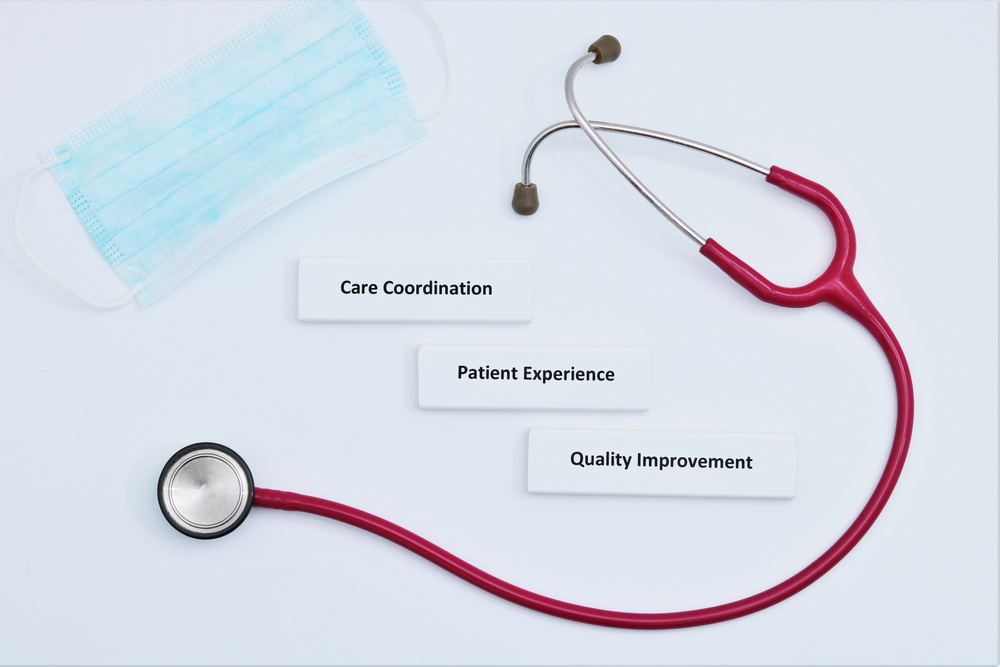Story by Connor Danielowski / October 20, 2025

Between medical appointments, patients with chronic conditions face a critical gap in healthcare support. This period—when patients manage medications independently, coordinate specialist visits, and respond to changing symptoms—often determines health outcomes more significantly than the office visits themselves.
Quick Answer: The care gap between appointments leads to medication non-adherence, missed follow-ups, and preventable emergency room visits. Medicare’s Chronic Care Management program addresses this by funding monthly patient coordination and support.

Every healthcare leader recognizes this pattern: patients leave appointments with clear care instructions, yet weeks later appear in the emergency room or struggle with basic medication management. What happens between clinical visits largely determines what happens during those visits.
This is where Medicare’s Chronic Care Management (CCM) program provides essential support. Designed specifically for patients managing two or more chronic conditions, CCM funds the monthly care coordination, patient coaching, and follow-up activities that traditional appointment schedules cannot accommodate.
The outcome of structured between-visit support includes healthier patients, reduced healthcare costs, and decreased strain on overextended provider teams.
Between scheduled appointments, patients managing chronic conditions often navigate complex healthcare needs alone—coordinating multiple medications, scheduling specialist visits, and managing various providers. Without proactive clinical support, minor issues escalate into medical emergencies.
Consider these everyday scenarios that compound into serious outcomes:
Medication management failures occur when patients forget prescription refills, leading to treatment interruptions and symptom recurrence.
Missed follow-up appointments happen without reminder systems, breaking care continuity and allowing conditions to worsen unmonitored.
Unreported symptom changes escalate because no one checks in with patients between visits, preventing early intervention.
Each missed touchpoint contributes to increased emergency room utilization, hospital readmissions, and declining patient health outcomes.
According to the Centers for Disease Control and Prevention (CDC), over 90% of U.S. healthcare spending addresses chronic disease management. The healthcare system’s breakdown occurs not at the point of care delivery, but in the gaps between care interactions.
Key chronic disease statistics:

Chronic Care Management programs were specifically designed to eliminate dangerous gaps in patient support. By providing structured monthly patient contact, CCM ensures care continuity extends beyond office walls.
Effective Chronic Care Management programs provide comprehensive between-visit support:
Medication reconciliations help patients understand their prescriptions, identify potential interactions, and address adherence barriers before complications develop.
Appointment coordination ensures patients keep scheduled follow-ups with primary care providers and specialists, maintaining care plan momentum.
Barrier identification uncovers social determinants of health—including transportation challenges, nutritional limitations, and financial constraints—that impact medical outcomes.
Proactive symptom monitoring catches concerning changes early, allowing care teams to intervene before situations become emergencies.
Direct EMR documentation maintains care continuity by charting every patient interaction within existing electronic medical records systems for full care team visibility.
This approach transforms reactive healthcare into proactive chronic disease management—consistent, thoroughly documented, and genuinely patient-centered.

When proactive between-visit care becomes consistent practice, clinical outcomes improve dramatically. Real-world Chronic Care Management programs demonstrate significant health improvements.
One Federally Qualified Health Center (FQHC) implementing comprehensive CCM achieved remarkable first-year outcomes:
60% reduction in emergency room visits as patients received timely intervention before conditions escalated to crisis levels.
71% of diabetic patients improved A1C levels through consistent medication adherence support and lifestyle coaching between endocrinology visits.
Measurable increases in patient satisfaction scores reflected patients feeling more supported and confident managing their conditions.
These results aren’t isolated success stories—they reflect systematic outcomes when healthcare delivery shifts from reactive crisis management to preventive care coordination.
Chronic Care Management programs prevent costly emergency interventions through several mechanisms:
Early warning detection through regular check-ins identifies concerning symptoms before they require emergency intervention.
Medication adherence support prevents treatment gaps that lead to acute exacerbations of chronic conditions.
Patient education helps individuals recognize warning signs and know when to contact their care team rather than defaulting to emergency rooms.
Care team escalation protocols ensure physicians receive timely alerts about concerning changes, enabling office-based interventions rather than hospital admissions.
Post-hospitalization support during the critical transition period reduces the likelihood of readmission within 30 days.
For patients managing chronic illness, consistent connection provides clinical value equal to medical interventions. Regular monthly contact delivers reassurance, accountability, and genuine healthcare partnership.
Effective CCM programs ensure care coordinators communicate under the practice’s identity—maintaining care continuity rather than creating patient confusion about third-party involvement.
This implementation detail significantly impacts outcomes. It builds patient trust, reinforces practice brand identity, and strengthens long-term patient engagement.
Patient engagement benefits:
Effective CCM programs look beyond clinical factors to address social determinants that impact health outcomes.
Transportation barriers prevent patients from attending appointments and filling prescriptions. Care coordinators can connect patients with medical transportation resources or identify mail-order pharmacy options.
Food insecurity and nutrition directly impacts conditions like diabetes and hypertension. Coordinators identify patients needing food assistance programs or nutritional counseling.
Health literacy gaps leave patients unable to understand care instructions or recognize warning signs. Coordinators provide patient education in accessible language.
Financial constraints cause patients to skip medications or avoid necessary care. Coordinators can identify prescription assistance programs and low-cost care alternatives.
Social isolation particularly affects elderly patients with chronic conditions. Regular check-ins provide meaningful human connection while monitoring health status.
Addressing these non-clinical factors often proves as important as medical interventions for improving chronic disease outcomes.

Healthcare organizations don’t need more programs—they need effective implementation of evidence-based interventions that work. Chronic Care Management bridges the long-standing care gap driving preventable complications and unnecessary healthcare spending.
The CCM model has proven effectiveness. Medicare funding exists. What many organizations lack is the operational capacity to sustain consistent program delivery.
Common CCM implementation challenges:
Organizations face strategic decisions about CCM program structure. Specialized CCM staffing partners provide:
Experienced care coordinators trained specifically in chronic disease management and Medicare compliance requirements.
Standardized processes and workflows proven to deliver consistent patient outreach and documentation.
Scalable capacity that grows with patient enrollment without internal hiring challenges.
Technology integration that works within existing EMR systems without requiring new software purchases.
Performance reporting connecting clinical outcomes with program financial performance.
This partnership approach makes proactive care operationally simple and financially sustainable for practices of all sizes.
Effective Chronic Care Management programs track both clinical and operational metrics:
Patient engagement metrics:
Clinical outcome metrics:
Financial performance metrics:

If your patients lack support between appointments, they face increased health risks—and your organization misses opportunities for improved outcomes and revenue.
Identify your eligible patient population by running reports for patients with two or more documented chronic conditions.
Assess current care gaps by evaluating how many eligible patients currently receive between-visit coordination.
Choose your implementation model based on internal capacity—whether building in-house programs or partnering with specialized CCM service providers.
Establish workflows and protocols for patient outreach, documentation standards, and care team communication.
Train staff on CCM requirements including Medicare compliance, billing procedures, and patient consent processes.
Monitor performance consistently through regular review of engagement, clinical, and financial metrics.
How does CCM improve patient outcomes? CCM improves outcomes by providing consistent monthly contact between appointments, ensuring medication adherence, identifying problems early, and coordinating care across multiple providers. Studies show CCM reduces ER visits by 25-60% and improves chronic disease markers.
What types of patients benefit most from CCM? Patients with multiple chronic conditions (diabetes, heart failure, COPD, hypertension, chronic kidney disease stages 1–3) who take multiple medications and see multiple providers benefit most from care coordination.
How often do CCM coordinators contact patients? Medicare requires at least 20 minutes of care coordination monthly for basic CCM services. Best practices include scheduled monthly calls plus as-needed follow-up when concerns arise. Complex patients may receive multiple contacts per month.
Can CCM services be provided remotely? Yes, CCM is specifically designed as non-face-to-face care coordination. Services are typically provided by phone, allowing coordinators to reach patients in their homes and coordinate care between office visits efficiently.
How quickly do CCM programs show results? Many organizations see measurable improvements in patient engagement within 60-90 days. Clinical outcomes like reduced ER visits typically become evident within 6-12 months of consistent program implementation.
Healthcare organizations leaving patients unsupported between visits face both clinical and financial consequences. The care gap is bridgeable with proven Chronic Care Management strategies.
You don’t need to build CCM programs alone. Specialized partners have helped practices nationwide transform this challenge into their most impactful clinical and financial initiative.
Ready to deliver better care between visits? Schedule a strategy consultation to discuss how comprehensive CCM programs can improve your patient outcomes while generating sustainable revenue. Discover specific opportunities within your current patient population.
About Between-Visit Care Coordination Services
Comprehensive CCM services include dedicated nurse care coordinators, seamless EMR integration, Medicare-compliant documentation, barrier identification and resolution, and detailed performance reporting connecting clinical outcomes with financial results. Transform the dangerous care gap into your organization’s greatest opportunity for meaningful patient impact.
Related Topics: Patient care coordination programs, chronic disease management between visits, reducing hospital readmissions, Medicare preventive care programs, population health management strategies, social determinants of health interventions
